According to the most recent statistics, over sixty-three countries (including China, Germany, France, Iran, Sri Lanka, South Korea, the United States of America, and several other nations) are working on nanotechnology and the manufacturing of Nano products. Companies like Rubber Nano, Pro Nano, and EPG-engineered Nano products Germany ag are some of the businesses that are working in the field of nanotechnology and developing a variety of nano products.  Nanotechnology will be recognized as the primary economic center in the not-too-distant future, and as the core of economic growth in the current century, countries should innovate in the commercialization of nanotechnology and be creative in this way to make their knowledge-based economy undergo a significant transformation. The most important technological advancement of the twenty-first century is nanotechnology has the potential to develop new business sectors. The biological, medical, and pharmaceutical industries, as well as the materials, electronics, machinery, and healthcare sectors, all use this technology today.
Nanotechnology will be recognized as the primary economic center in the not-too-distant future, and as the core of economic growth in the current century, countries should innovate in the commercialization of nanotechnology and be creative in this way to make their knowledge-based economy undergo a significant transformation. The most important technological advancement of the twenty-first century is nanotechnology has the potential to develop new business sectors. The biological, medical, and pharmaceutical industries, as well as the materials, electronics, machinery, and healthcare sectors, all use this technology today.
Rubber nano products
The technology held by Rubber Nano Products (Pty) Ltd [RNP] enables the development of chemically specialized activators for the many primary classes of accelerators used in sulfur-based rubber vulcanization. These accelerator classes are determined by the chemical species that make up the accelerator type’s active component. ![]() The substrate that is utilized can be changed with RNP technology, and practically any material that is used to make rubber can be turned into activators. Among the various options are sulfur, silica, carbon black, and even activating stearic acid. The RNP products enable the rationalization and reduction of zinc oxide and zinc content in the production of rubber articles. This is done while also having significant cure and productivity advantages, which can be used to lower the temperature of the curing press while saving energy. Property performances that are not typical of standard ZnO rubber formulations employing the standard accelerators are made possible by the behavior of the coactivators of RNP. environmental advantages include cost and energy savings, as well as increased productivity. The current invention offers a composition that can be used to vulcanize rubber as well as a method for making the composition.
The substrate that is utilized can be changed with RNP technology, and practically any material that is used to make rubber can be turned into activators. Among the various options are sulfur, silica, carbon black, and even activating stearic acid. The RNP products enable the rationalization and reduction of zinc oxide and zinc content in the production of rubber articles. This is done while also having significant cure and productivity advantages, which can be used to lower the temperature of the curing press while saving energy. Property performances that are not typical of standard ZnO rubber formulations employing the standard accelerators are made possible by the behavior of the coactivators of RNP. environmental advantages include cost and energy savings, as well as increased productivity. The current invention offers a composition that can be used to vulcanize rubber as well as a method for making the composition.  The composition includes a salt of a vulcanization accelerator chosen from the group of accelerator classes consisting of a solid particulate substrate, hydrophobic carrier material, thiazoles, dithiocarbamates, dithiophosphates, sulfenamides, thiuram sulfides, xanthates, guanidines, or combinations thereof. To achieve previously unachievable cost savings while maintaining and, in many cases, even improving the quality of the finished rubber product, the Rubber Nano Vision of polymer curing enables a new way of looking at a rubber system. The devoted RNP development team is committed to guiding industries through this learning curve and assisting them in obtaining the ideal rubber systems they need.
The composition includes a salt of a vulcanization accelerator chosen from the group of accelerator classes consisting of a solid particulate substrate, hydrophobic carrier material, thiazoles, dithiocarbamates, dithiophosphates, sulfenamides, thiuram sulfides, xanthates, guanidines, or combinations thereof. To achieve previously unachievable cost savings while maintaining and, in many cases, even improving the quality of the finished rubber product, the Rubber Nano Vision of polymer curing enables a new way of looking at a rubber system. The devoted RNP development team is committed to guiding industries through this learning curve and assisting them in obtaining the ideal rubber systems they need.
Pro nano products
Pro Nano is a company that is seeking international expansion in producing nano car products. To dominate the European market, it is actively expanding its activities globally. A few vehicles, including motorcycles, cars, pick-up trucks, vans, trucks, trailers, boats, and yachts, can be cleaned without leaving any scratches by using a variety of products that have been designed for this purpose.  The business has expanded so that it can now help the industrial and agricultural sectors maintain their machinery and construction equipment. These top-notch automotive cosmetics for vehicles utilize nanotechnology and are of the finest caliber. Thanks to nanotechnology, this business, like several others, was able to develop high-quality auto maintenance products. The same as pro Nano and some other brands that offer vehicle washing shampoo, detailing, wax, polish, and other car care products, the car wash or car care products may be linked to nanotechnology and nanoparticles. Nanoparticle-enabled products would be more productive with less product, time, and effort. The car wash nano products will keep your automobile cleaner and more well maintained than standard car care products. The body of the car benefits greatly from the additional beauty that car ceramics products offer. The use of car wax makes the car appear shining and helps to protect the color of the car. The engine and all the parts beneath the hood must be kept in good working order if you want the automobile to perform better. Maintaining the tires and rims on your automobile improves not only the appearance of the car but also the safety and performance of the car on the road.
The business has expanded so that it can now help the industrial and agricultural sectors maintain their machinery and construction equipment. These top-notch automotive cosmetics for vehicles utilize nanotechnology and are of the finest caliber. Thanks to nanotechnology, this business, like several others, was able to develop high-quality auto maintenance products. The same as pro Nano and some other brands that offer vehicle washing shampoo, detailing, wax, polish, and other car care products, the car wash or car care products may be linked to nanotechnology and nanoparticles. Nanoparticle-enabled products would be more productive with less product, time, and effort. The car wash nano products will keep your automobile cleaner and more well maintained than standard car care products. The body of the car benefits greatly from the additional beauty that car ceramics products offer. The use of car wax makes the car appear shining and helps to protect the color of the car. The engine and all the parts beneath the hood must be kept in good working order if you want the automobile to perform better. Maintaining the tires and rims on your automobile improves not only the appearance of the car but also the safety and performance of the car on the road. 
EPG engineered nano products Germany ag
Engineered Nanoproducts Germany AG manufactures nanoproducts, nano raw materials, and nano-coatings. The business provides metal coating, hygienic, self-sterilizing surfaces, nanocomposite parts for optics, plastic and coating technologies, and nano binder technologies for insulation and oil and gas production. EPG is a leader on a global scale. To meet consumer demands, they create cutting-edge raw materials and nanomaterials. Additionally, they would be delighted to produce items for industrial clients in large quantities. Their areas of specialization include chemistry, materials science, and product and process engineering. EPG is a helpful technique for maximizing the economic potential of high-performance nanosurfaces. Engineered Nanoproducts Germany focuses on consulting-based original issue solutions in coatings, binders, and surface technology. For more than 15 years, EPG AG has been creating sol-gel coatings as a chromium substitute.  Ultra-thin coatings protect the appearance and feel of metals with Nanoseal® for high temperatures and Saphiral® for low temperatures, while various color variations offer distinctive and fashionable accents. The development of biocidal plastic coatings has begun. Initial research suggests that sol-gel can be beneficial in several circumstances. Although EPG coatings are rather thin, they provide excellent corrosion and scratch resistance. The metallic surface’s feel and touch are kept because the layers are so thin that a human eye can hardly distinguish between them. Coatings are put through the necessary quality tests, including abrasion and scratch resistance, salt mist resistance, and chemical resistance. The results are available in our publications. Engineered Nanoproducts Germany also offers hybrids with an inorganic-organic matrix, which have superior qualities to exclusively organic systems and are stable up to 600 °C. High-performance coatings and sol-gel coating technologies are well-known specialties of Engineered Nanoproducts Germany. EPG AG, an integrated system provider, creates innovative composite materials for sand consolidation and proppant binding in addition to offering complete solutions for high-performance metal coatings.
Ultra-thin coatings protect the appearance and feel of metals with Nanoseal® for high temperatures and Saphiral® for low temperatures, while various color variations offer distinctive and fashionable accents. The development of biocidal plastic coatings has begun. Initial research suggests that sol-gel can be beneficial in several circumstances. Although EPG coatings are rather thin, they provide excellent corrosion and scratch resistance. The metallic surface’s feel and touch are kept because the layers are so thin that a human eye can hardly distinguish between them. Coatings are put through the necessary quality tests, including abrasion and scratch resistance, salt mist resistance, and chemical resistance. The results are available in our publications. Engineered Nanoproducts Germany also offers hybrids with an inorganic-organic matrix, which have superior qualities to exclusively organic systems and are stable up to 600 °C. High-performance coatings and sol-gel coating technologies are well-known specialties of Engineered Nanoproducts Germany. EPG AG, an integrated system provider, creates innovative composite materials for sand consolidation and proppant binding in addition to offering complete solutions for high-performance metal coatings. 
Nano products in Sri Lanka
In order to create and promote nanotechnology-based enterprises for making nano products, Sri Lanka has made the first and most significant measures. An important step in this direction was the establishment of SLINTEC, the Sri Lanka Institute of Nanotechnology. The future of Sri Lanka’s nanotechnology-based industry appears to be promising, with the country’s top universities and research institutes engaging in innovative and cutting-edge R&D. Multilac-SLINTEC When Novid spray comes into touch with a surface, its special anti-viral technology cleans the area of viruses. The coating eliminates bacteria both on surfaces and in the air after application, ensuring that you always have clean air free of bacteria and other microbes. In association with the Sri Lanka Institute of Nano Technology, the Atlas Auxilia Company created and provided antibacterial stationery.  99.9% of the microorganisms on these antibacterial pens’ surfaces can be eliminated. We are pleased to present the first antibacterial stationery available in Sri Lanka from Atlas Axillia. Mothers throughout the nation are worried about the well-being and security of their kids as schools resume. With the use of cutting-edge antibacterial technology created in Sri Lanka, Atlas and the Sri Lanka Institute of Nano Technology (SLINTEC) have created these innovative products, which include unique books and pens that kill 99.9% of bacteria on their surfaces. One of the numerous inventions that Atlas has developed over the years to transform the Sri Lankan stationery business is its line of antibacterial products, the efficacy of which has been independently confirmed by recognized organizations. Established in 1959, the Ceylon Pencil Company later changed its name to Atlas Auxilia Company. This business has since dominated Sri Lanka’s market for school supplies. The business has received numerous honors, such as the 2018 National Quality Award and the 2020 Global Best Performance Award.
99.9% of the microorganisms on these antibacterial pens’ surfaces can be eliminated. We are pleased to present the first antibacterial stationery available in Sri Lanka from Atlas Axillia. Mothers throughout the nation are worried about the well-being and security of their kids as schools resume. With the use of cutting-edge antibacterial technology created in Sri Lanka, Atlas and the Sri Lanka Institute of Nano Technology (SLINTEC) have created these innovative products, which include unique books and pens that kill 99.9% of bacteria on their surfaces. One of the numerous inventions that Atlas has developed over the years to transform the Sri Lankan stationery business is its line of antibacterial products, the efficacy of which has been independently confirmed by recognized organizations. Established in 1959, the Ceylon Pencil Company later changed its name to Atlas Auxilia Company. This business has since dominated Sri Lanka’s market for school supplies. The business has received numerous honors, such as the 2018 National Quality Award and the 2020 Global Best Performance Award. 
Nano tech products in Japan
Japan has improved its position in nano tech thanks to years of excellent investment in nanotechnology and its products. Beginning in 2001, with the 2nd Science and Technology Basic Plan, the Japanese government has supported nanotechnology (STBP). One of eight national issues of interest in this plan was given priority: nanotechnology and nanomaterials. Clean energy and electronics received the most significant investments. In this plan, the development of advanced nanomaterials that can replace scarce or deficient materials as well as nanomaterials and technologies that support healthy lives were also listed as major nanotechnology research topics. The research areas of nanoelectronics, nanomaterials, and nano life sciences were primarily the focus of the government’s interest. Japan became a desirable location for nanotechnology commercialization thanks to both significant private sector investment and government investment.  With over US $1 billion in funding per year and the establishment of a vast national network of research and innovation centers, Japan is a major player in the field of nanotechnology. Japan has historically been one of the two countries that have invested the most in public and private nanotechnology research, along with the United States. The Japanese nano business Nippon Shokubai was founded. A test of mass production using materials based on graphene oxide was successful, the company reported in 2017. The materials based on graphene oxide have since been made available as samples for the creation of the application. Utilizing the Super-growth technique created by the National Institute of Advanced Industrial Science and Technology, Zeon Corporation completed and started operating the world’s first mass-production plant for carbon nanotubes in late 2015. Advanced material development is done by Admatechs, which was founded by Toyota Motor Corporation and Shin-Etsu Chemical Corporation Limited.
With over US $1 billion in funding per year and the establishment of a vast national network of research and innovation centers, Japan is a major player in the field of nanotechnology. Japan has historically been one of the two countries that have invested the most in public and private nanotechnology research, along with the United States. The Japanese nano business Nippon Shokubai was founded. A test of mass production using materials based on graphene oxide was successful, the company reported in 2017. The materials based on graphene oxide have since been made available as samples for the creation of the application. Utilizing the Super-growth technique created by the National Institute of Advanced Industrial Science and Technology, Zeon Corporation completed and started operating the world’s first mass-production plant for carbon nanotubes in late 2015. Advanced material development is done by Admatechs, which was founded by Toyota Motor Corporation and Shin-Etsu Chemical Corporation Limited.  A few technologies are being developed by the company’s R&D division based on VMC combustion technology, such as high particle dispersion, particle surface treatment, and coarse particle removal from spherical metal oxide particles.
A few technologies are being developed by the company’s R&D division based on VMC combustion technology, such as high particle dispersion, particle surface treatment, and coarse particle removal from spherical metal oxide particles.
Nano products manufacturers in China
In China, there are numerous nanotechnology startups and manufacturers who are working to create new treatments, medications, and useful products. Ascletis is one of these businesses that finds and develops cancer and infectious disease treatments. It offers ALN-VSP, a therapeutic that uses siRNAs to target genes essential for the expansion and development of cancer cells. clinical trials involving small molecules for the treatment of HIV and hepatitis C are also ongoing. Alnylam Pharmaceuticals and Minsheng Pharma are strategic partners with the business.  Developing a nanocarrier delivery platform for mRNA vaccines is Siwei Biotechnology Group, another nano company in China. The LPP/mRNA is a patented Nano model for the two-layer structure-based delivery of mRNA drugs. For the treatment of cancer, infectious diseases, diseases caused by protein defects, and genetic diseases, the company has developed mRNA-based personalized therapeutics that are delivered through the delivery platform. Intelligent air purification systems are produced by LIFAair. It creates and provides air purification solutions for use in automotive, commercial, and residential settings. Based on its patented 3G air filtration technology, which purports to eliminate tiny particles, bacteria, viruses, and harmful gases, it creates air purifiers. The system employs a 7-stage filtration procedure with UV, ionization, and carbon filtration among its components. Using its companion mobile application, users can monitor and control the air purifiers. For residential users, it offers standalone systems, and for commercial buildings, it offers filtration units that can be integrated with the existing HVAC systems. One of the most reputable manufacturers of graphene nanostructures in China is Morui Technology. It creates raw materials for graphene as well as application products.
Developing a nanocarrier delivery platform for mRNA vaccines is Siwei Biotechnology Group, another nano company in China. The LPP/mRNA is a patented Nano model for the two-layer structure-based delivery of mRNA drugs. For the treatment of cancer, infectious diseases, diseases caused by protein defects, and genetic diseases, the company has developed mRNA-based personalized therapeutics that are delivered through the delivery platform. Intelligent air purification systems are produced by LIFAair. It creates and provides air purification solutions for use in automotive, commercial, and residential settings. Based on its patented 3G air filtration technology, which purports to eliminate tiny particles, bacteria, viruses, and harmful gases, it creates air purifiers. The system employs a 7-stage filtration procedure with UV, ionization, and carbon filtration among its components. Using its companion mobile application, users can monitor and control the air purifiers. For residential users, it offers standalone systems, and for commercial buildings, it offers filtration units that can be integrated with the existing HVAC systems. One of the most reputable manufacturers of graphene nanostructures in China is Morui Technology. It creates raw materials for graphene as well as application products.  The company’s product line consists of graphene powder, chemical graphene oxides, graphene reinforced composites, heat dissipation coatings, graphene thermal films and grease, and graphene lithium-ion-based conductive agents. Engaging in work related to nanotechnology will pave the way to a better future that will bring about advancements and improvements in welfare. Our firm has been operating in this industry for a significant number of years, and during that time, we have never let down any of our clients.
The company’s product line consists of graphene powder, chemical graphene oxides, graphene reinforced composites, heat dissipation coatings, graphene thermal films and grease, and graphene lithium-ion-based conductive agents. Engaging in work related to nanotechnology will pave the way to a better future that will bring about advancements and improvements in welfare. Our firm has been operating in this industry for a significant number of years, and during that time, we have never let down any of our clients.


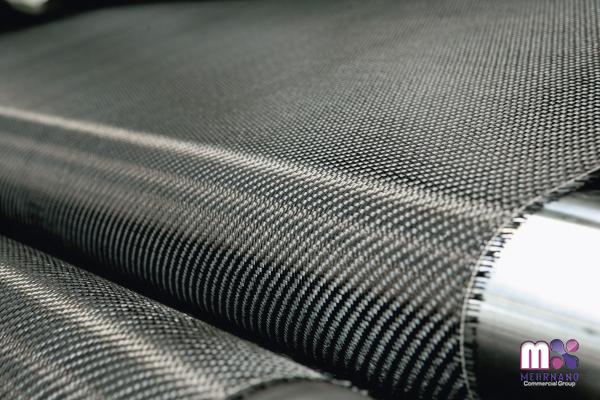
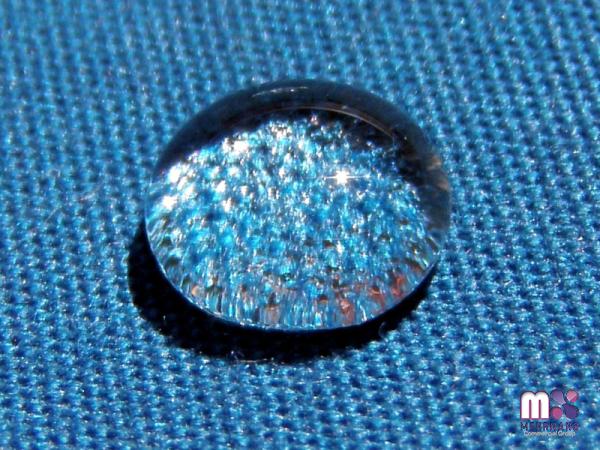




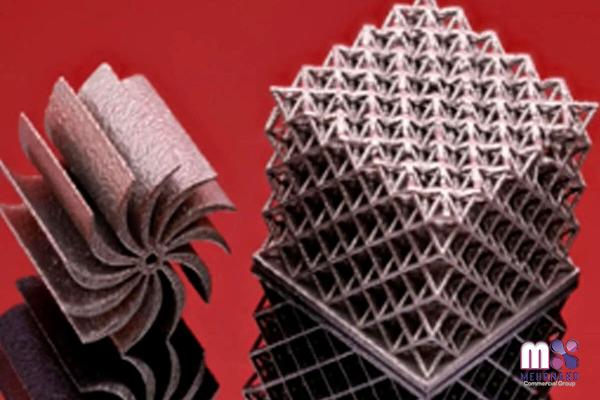
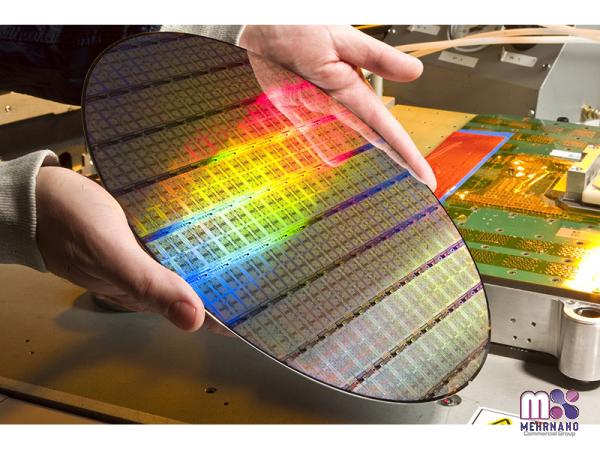
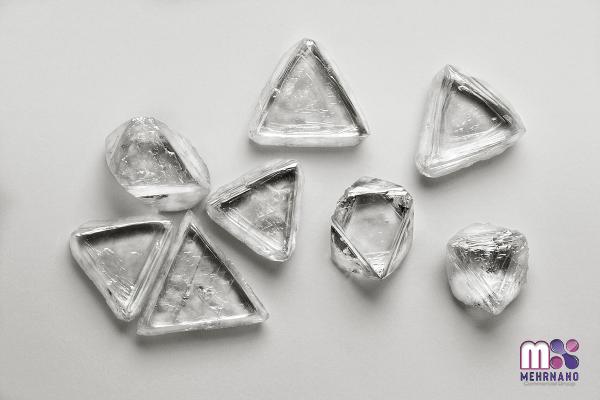
Your comment submitted.